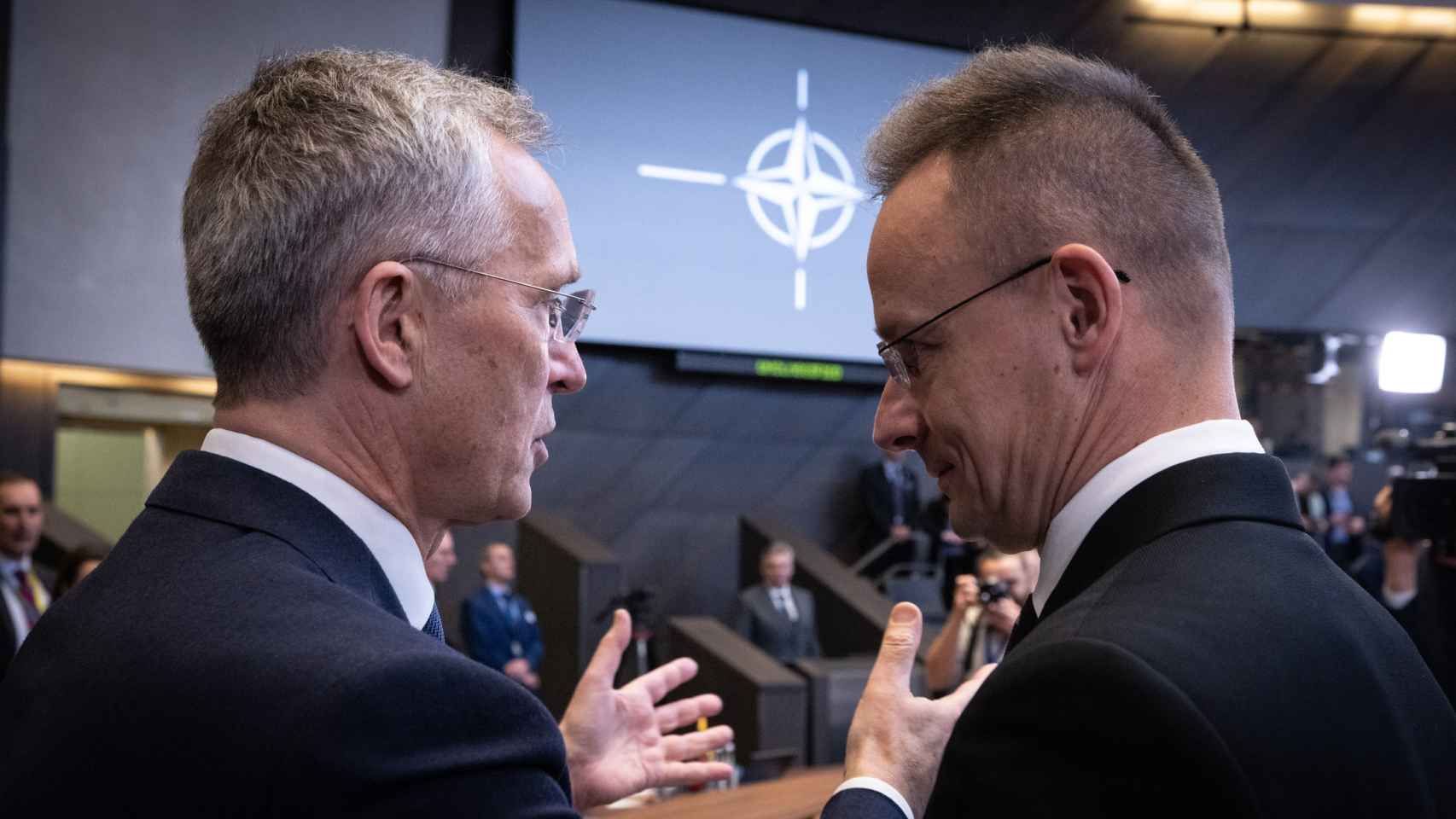On April 4, 1949, the 12 founding countries of NATO signed the Washington Treaty of collective defense in response to the threat of Soviet Union. A military coalition based on a “solemn promise”: any attack against one of its members will be considered an attack against all, that would trigger a common response.
The Atlantic Alliance -which now has 32 members after the entry of Sweden- celebrate this Thursday its 75th anniversary with a meeting of foreign ministers in Brussels and a meeting of the NATO-Ukraine Council. And it does so in a context marked by Russia's war of aggression against kyiv and by the risk that the United States will ignore the defense of Europe if donald trump wins the November elections.
Hence, the debates of NATO foreign ministers focus on how to shield military aid to Volodymyr Zelensky's government before a possible return of Trump. A threat that can already be observed in practice, since the former president's allies They keep a $60 billion package for Ukraine blocked in Congress.
[La OTAN sopesa crear un fondo de 100.000 millones de ayuda militar a Ucrania que sobreviva a Trump]
“The fact that there is no agreement in the US Congress has consequences. It is one of the reasons why the Ukrainians have to ration the number of artillery shells and have problems resisting the Russian forces,” admitted NATO Secretary General Jens Stoltenberg. The United States has so far provided 50% of aid to Ukraine, while European allies and Canada account for the other half.
To face these risks, Stoltenberg has proposed to allied countries to create a fund of 100 billion dollars of military aid to Ukraine for the next five years. An initiative with which he also wants to give predictability to the Government of Volodymyr Zelensky so that it can plan new offensives against Russia. “Support for Ukraine is not charity, it is an investment in our own security,” he argues. Each country would contribute based on its GDP, which in principle would reduce the US contribution.
NATO Secretary General Jens Stoltenberg talks with Foreign Minister José Manuel Albares and his counterparts from the Czech Republic, Slovenia and Bulgaria during the meeting this Wednesday in Brussels
The secretary general also states that the Atlantic Alliance take into your bosom the coordination of arms shipment to Ukraine. It would be about replace the role now played by the Contact Group for the Defense of Ukraine (also called Rammstein format), which is led by Washington. In this way, he intends to ensure that this coordination is maintained even if Trump decides to disengage from kyiv, as he has suggested during the campaign.
NATO foreign ministers discussed Stoltenberg's plan for the first time this Wednesday during the opening day of their meeting in Brussels. “We have not made any final decision about the format that we are going to establish, but we have agreed to launch the planning,” explained the Secretary General. The objective is to reach an agreement at the summit of heads of State and Government to be held in Washington at the beginning of July.
[Rutte se consolida como favorito para dirigir la OTAN tras darle su apoyo Kallas, que quería el cargo]
However, this initiative initially clashes with the reserves from countries like Hungary or Türkiye. ““Hungary will not support any NATO proposal that could bring the alliance closer to war or turn it from a defensive to an offensive coalition,” its Foreign Minister said. Péter Szijjártó.
“I don't see any risk of escalation since we are not going to send our troops to Ukraine, because Ukraine is not asking for it. Ukraine is asking for ammunition and long-term commitments. And we have the money. This is the cheapest and most effective way to support Ukraine and also to strengthen our defense and security for the future,” replies the head of Estonian diplomacy. Margus Tsahkna. Lithuania and Poland have also supported Stoltenberg's initiative.

Jens Stoltenberg talks with Hungarian Foreign Minister Péter Szijjártó, the main opponent of his plan, during the meeting this Wednesday in Brussels
However, other allies have been more cautious and they have insisted that it is necessary to clarify all the details of the plan very well before giving the green light to this 100 billion fund. And ensure that it does not overlap with other similar initiatives of the European Union or of a bilateral nature.
“We can appreciate it, of course. But what we should not do in any case is duplicate efforts. We should not bilaterally duplicate what can be done better together in the European Union and there is no need to duplicate in NATO what the EU does“said the Minister of Foreign Affairs, José Manuel Albares. “It is dangerous to make promises that we will not be able to keep later,” points out the head of Belgian diplomacy, Hadja Lahbib.
Stoltenberg has spoken twice in the last week with the Hungarian prime minister, Viktor Orbán, and still hopes to close an agreement at the July summit. “The paradox is that if we want peace, if we want to end this war, the best way to achieve that is to ensure that Ukraine has the military strength to convince Putin that he cannot win on the battlefield. He has to sit down and negotiate,” he explained.
“What we are discussing is not a NATO combat presence in Ukraine. “We are discussing how we can coordinate and send support from outside Ukraine to Ukraine (…) I am confident that we will be able to address the concerns that Hungary has raised and find a way to reach consensus in a matter of weeks,” says the Secretary General of The alliance.












